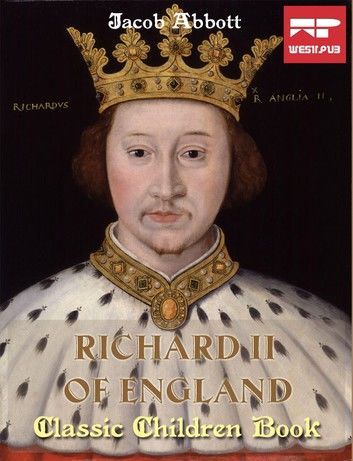Richard II (6 January 1367 – ca. 14 February 1400) was King of England from 1377 until he was deposed in 1399. Richard, a son of Edward, the Black Prince, was born during the reign of his grandfather, Edward III. Richard was the younger brother of Edward of Angoulême; upon the death of this elder brother, Richard—at four years of age—became second in line to the throne after his father. Upon the death of Richard's father prior to the death of Edward III, Richard, by agnatic succession, became the first in line for the throne. With Edward III's death the following year, Richard succeeded to the throne at the age of ten.
During Richard's first years as king, government was in the hands of a series of councils. The political community preferred this to a regency led by the king's uncle, John of Gaunt, yet Gaunt remained highly influential. The first major challenge of the reign was the Peasants' Revolt in 1381, which the young king played a major part in suppressing. In the following years, however, the king's dependence on a small number of courtiers caused discontent in the political community, and in 1387 control of government was taken over by a group of noblemen known as the Lords Appellant. By 1389 Richard had regained control, and for the next eight years governed in relative harmony with his former opponents. Then, in 1397, he took his revenge on the appellants, many of whom were executed or exiled. The next two years have been described by historians as Richard's "tyranny". In 1399, after John of Gaunt died, the king disinherited Gaunt's son, Henry of Bolingbroke, who had previously been exiled. Henry invaded England in June 1399 with a small force that quickly grew in numbers. Claiming initially that his goal was only to reclaim his patrimony, it soon became clear that he intended to claim the throne for himself. Meeting little resistance, Bolingbroke deposed Richard and had himself crowned as King Henry IV. Richard died in captivity early the next year; he was probably murdered.











